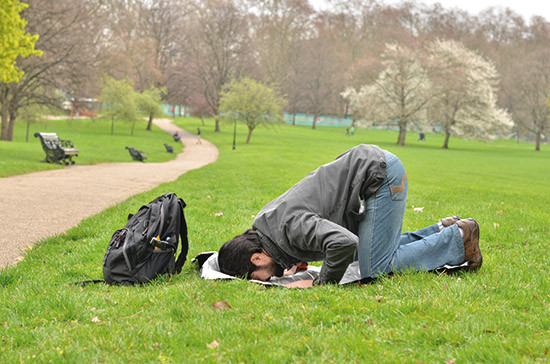Current Section: model

Lesson The Prayer of the Traveler and the Sick
Prayer is obligatory for a Muslim in all circumstances as long as they are sane and conscious. However, Islam does account for conditions and needs of people, including sickness and travel.
It is recommended for the traveler -while moving or staying for a period of less than four days- to shorten the four-rak’ah (unit) prayer to two. As a result, a traveler prays the Dhuhr, Asr, and Isha prayers as two rak’ahs instead of four, unless praying behind an imam who is a resident, in which case he follows him in his prayers and prays four rak’ahs like him.

It is prescribed for the traveler to leave the accompanying sunnah (recommended) prayers, except for the 2-rak'ah sunnah prayer of Fajr. Moreover, a travel should maintain the Witr prayer and the night prayer.
A travel is permitted to combine Dhuhr and 'Asr prayers, as well as Maghrib and 'Isha prayers during one of their respective times, especially if they are moving around, as a relief and mercy from Allah and to remove any hardship.
The condition of standing during prayer is waived for a sick person who cannot stand, or if standing is difficult, or if it will prolong their treatment. In these cases, they may pray sitting, and if they are unable to sit, they may pray lying on their side. The Prophet ﷺ said: «Pray standing, and if you can't, then sitting, and if you can't, then lying down» (Al-Bukhari 1117).



